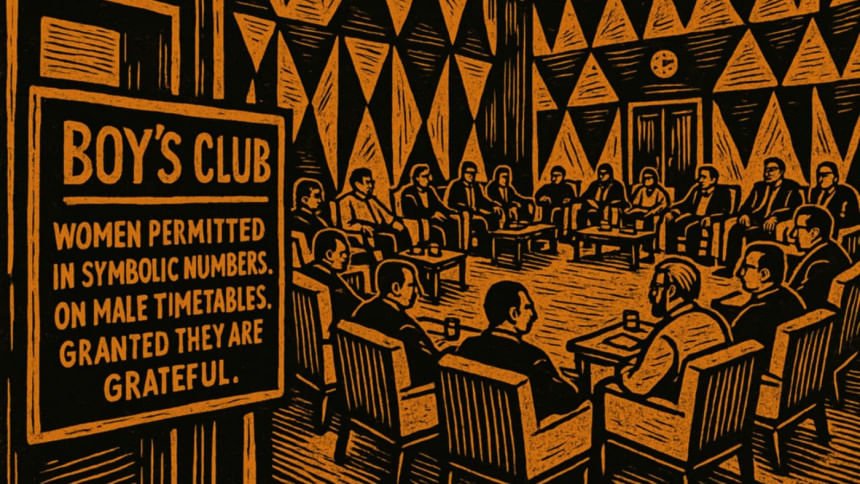The recent decision by the National Consensus Commission to maintain the current 50 reserved seats for women, without direct elections, and to mandate parties to nominate women in only five percent of general constituencies, signifies that men will primarily dictate the extent of women’s political representation. The commission’s composition, consisting of five male heads of reform commissions, negotiating with party delegations where women were significantly underrepresented, raises questions about who granted these men—many of whom have never been elected to parliament—the authority to determine how women should be represented. The decision on the number of women’s seats should ideally be debated publicly or decided through a national referendum.
Within the broader context of recent post-uprising events, a noticeable trend emerges regarding women’s participation in politics. The removal of the women’s quota in public service, underrepresentation in the interim cabinet and key commissions, and the marginalization of prominent women leaders indicate a deliberate narrowing of the political space for women post-uprising. This silencing of women is further fueled by a conservative shift in national politics, where right-wing influences seek to control women’s rights and freedoms, both in policymaking and public spaces.
The decision of the consensus commission is viewed as a reinforcement of the “fraternal social contract” in liberal democracies, where men dominate power-sharing while relegating women to secondary roles. This exclusion of women is part of a larger pattern of marginalization that extends to indigenous communities, religious minorities, persons with disabilities, and the economically disadvantaged, perpetuating the dominance of a select elite group in political decision-making.
The narrative of a “gradual increase” in women’s representation, as advocated by the consensus commission, serves as a delaying tactic to maintain the status quo of male dominance. The failure of political parties to comply with gender representation laws and their resistance to fielding more women candidates underscores a systemic issue rather than a genuine scarcity of capable women. The reluctance of parties to embrace more ambitious gender inclusion measures questions their commitment to true equality and democracy.
The resistance to enhancing women’s presence in politics is rooted in preserving the privileged status of a male-dominated political elite, showcasing a reluctance to share power or resources with women. The call for increased women’s representation, particularly through a transformative proposal to reserve 150 out of 450 parliamentary seats for women through direct elections, aims to redefine the structure of political representation and break the cycle of male patronage in party nominations.
The importance of involving women’s rights advocates in decision-making processes and the suggestion for a national referendum to determine the terms of women’s political inclusion highlight the necessity of inclusivity and transparency in shaping the country’s democratic future. Excluding women from political power undermines the essence of democracy and erases their significant contributions to society. It is imperative to acknowledge and amplify the voices of women in political decision-making to uphold the principles of equality and democracy.
It is critical to ensure that women, who have been integral to the fabric of society in various capacities, are not sidelined in the governance structures that shape the nation’s future. The restoration of women’s rightful place in political power is not just a matter of equality but a foundational pillar of a truly representative and participatory democracy.

